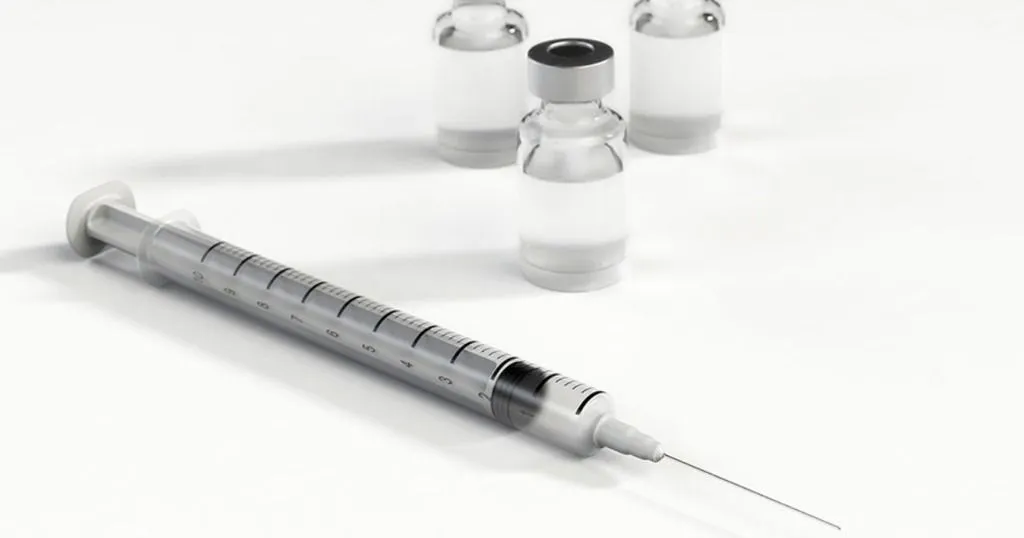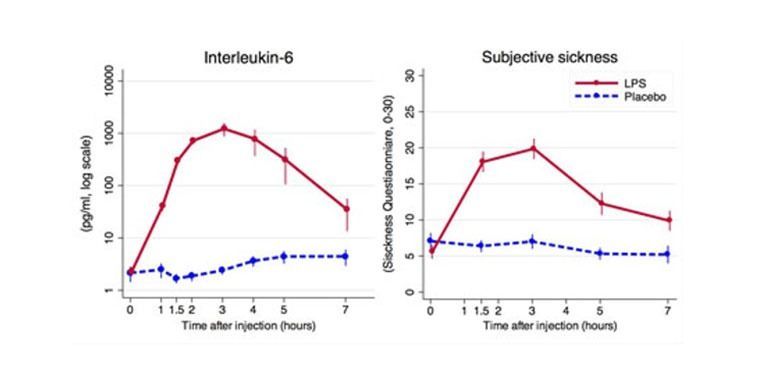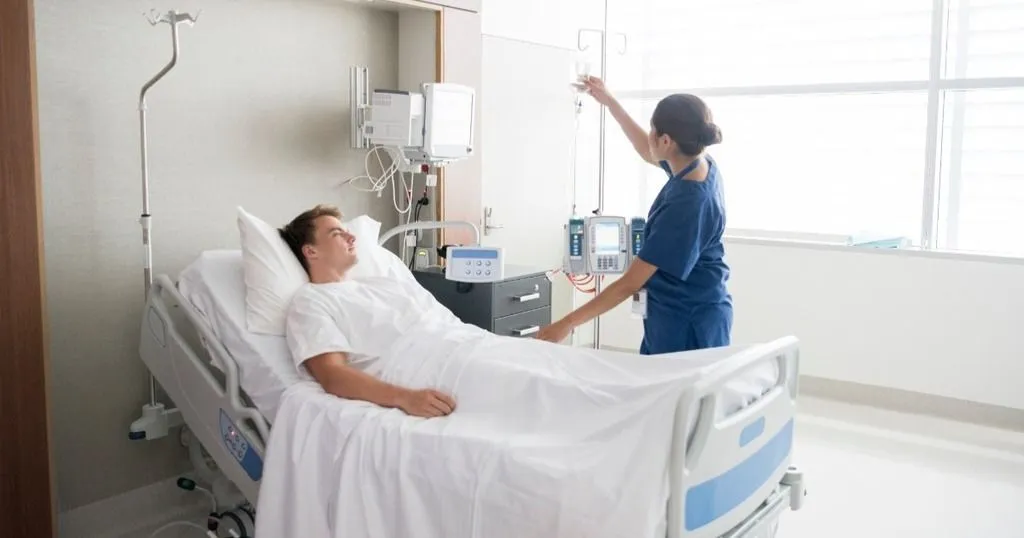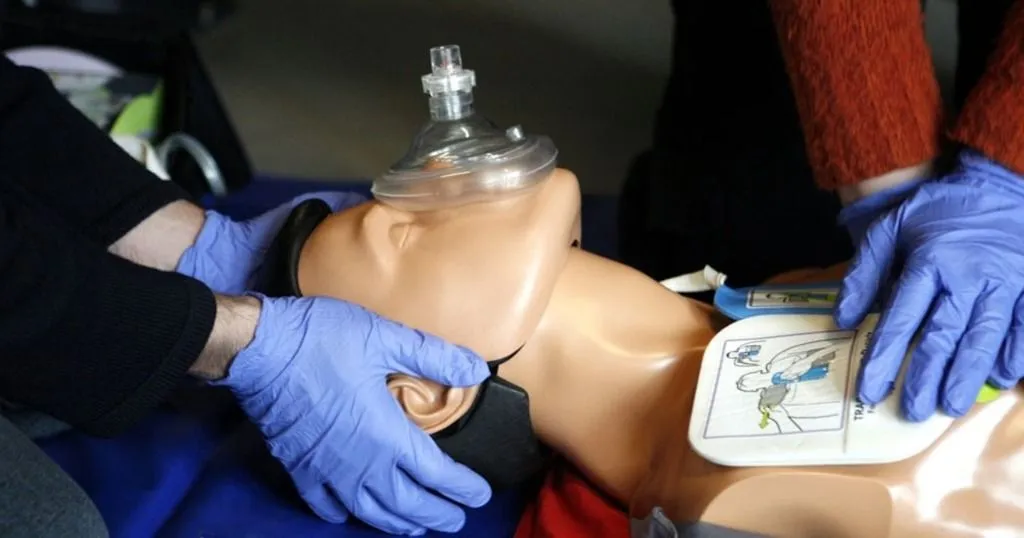Investigating the relationships between the immune system and the brain
Our research group is investigating the relationships between the immune system and the brain in humans.
Posted by
Published on
Wed 21 Dec. 2016
Topics
| Behavioral Research | Coding Behavior | Communication | The Observer XT |

By Julie Lasselin, PhD, Universitätsklinikum Essen, Germany and John Axelsson, PhD, Karolinska Institutet, Stockholm, Sweden
Using The Observer XT to investigate overt signs of sickness and health communication
Our research group is investigating the relationships between the immune system and the brain in Humans. One of the models we use is the experimentally-induced sickness. In this model, we intravenously inject a component of a bacteria (but not the bacteria itself), which makes the immune system believe that the body is infected and that it needs to fight the infection.
Therefore, this injection activates the immune system for a short time (3-4 hours) during which a sickness response is triggered. This sickness response is composed of all symptoms that we may feel when sick, such as fatigue, reduced appetite, difficulties to concentrate, reduced motivation to see people, etc (1).

Figure. Activation of the immune system and sickness symptoms using lipopolysaccharide (LPS) and placebo. This experimental sickness model is commonly used to study acute sickness in humans and animals. We evaluated films taken the first 4 hours after injection.
One way of assessing the behavioral effects of the immune activation is using questionnaires, that can be self-completed or completed by a trained investigator, and that include items regarding the state of the individuals. These questionnaires encompass for instance assessment of fatigue, anxiety, depressed mood, or sickness symptoms (e.g., headache, nausea), which have all been shown to increase during experimentally-induced sickness (e.g., (2)).
The questionnaires are therefore all based on the subjective feeling of individuals, and on their willingness to share this feeling. Although subjective feelings are of high importance, this may bias the outcomes.
A recent study found higher biological response during experimentally-induced sickness in women in comparison to men, but both sexes reported similar anxiety symptoms and depressed mood (3). Although it is possible that the behavioral outcomes are similar in men and women, it could also be that women tend to report less symptoms to what they actually feel, or that they interpret their feelings in a different way.
This is why the objective assessment of signs of sickness, and their association with subjective symptoms, are of importance. Also, healthcare personnel would benefit to know whether they can rely on subjective feelings or whether they should also take into account other objective signs of sickness, and which ones.
In order to assess overt signs of sickness during experimentally-induced sickness, we filmed the participants during four hours after the intravenous injection of the bacteria component (lipopolysaccharide) or a placebo (saline solution), meaning during the acute phase of the sickness response. These videos were then analyzed by two Master students using The Observer XT. Although very time consuming, this is a unique way of analyzing behavioral symptoms during experimentally-induced sickness in Humans.
Behaviors such as yawning, sniffing, stretching, sighing, complaining and moaning were scored in participants and caregiving (e.g., pampering) in the caregivers.
Difficulties you will face in these kind of studies:
- distinguish between some subtle differences in behavior when filming the entire room (e.g., sighing and deep breaths or facial expressions);
- very time consuming;
- a necessity to decide on a precise definition of the behaviors and to train the raters extensively;
- problems with unblinding of the raters (although not with all subjects, but the majority).
Advantages:
- overt sign of sickness and how we communicate about our ill-health during sickness, understanding interaction between sick individuals and healthcare personal (could be extended to other caregivers, e.g. close ones).
References
- Dantzer, R., et al. (2008). From inflammation to sickness and depression: when the immune system subjugates the brain. Nat Rev Neurosci,9 (1), 46-56.
- Lasselin, J., et al. (2016). Lipopolysaccharide Alters Motivated Behavior in a Monetary Reward Task: A Randomized Trial. Neuropsychopharmacology.
- Engler, H., et al. (2016). Men and women differ in inflammatory and neuroendocrine responses to endotoxin but not in the severity of sickness symptoms. Brain Behav Immun, 52, 18-26.
Related Posts

How to analyze nurse-patient consultations

Doctor-patient communication training program evaluated

